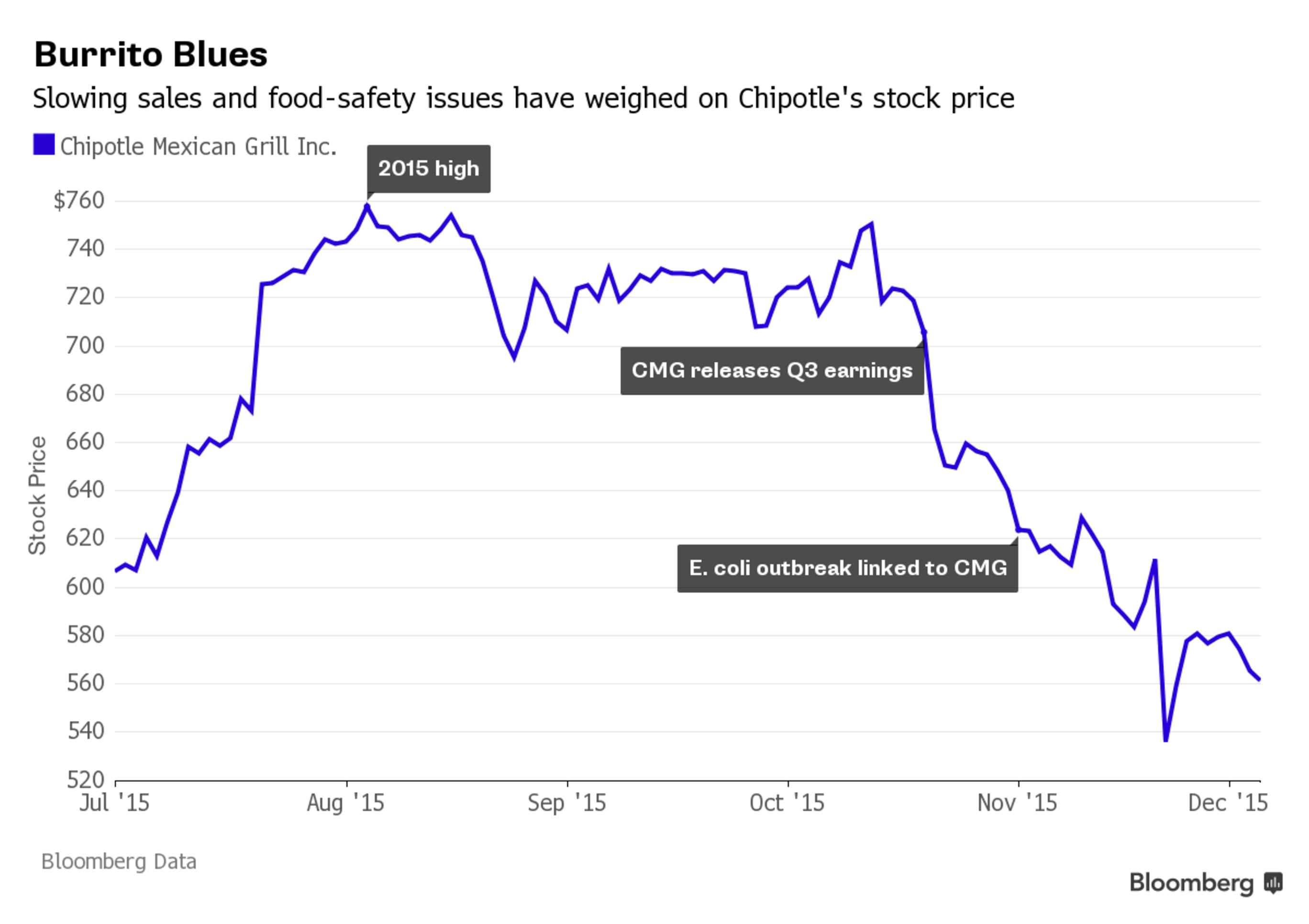For the past month, Chipotle Mexican Grill has been mired in a food safety crisis. An e. coli outbreak linked to Chipotle has sickened at least 52 people in nine states. In a seemingly unrelated outbreak, 120 people in Boston – most of them students at Boston College – also fell ill after contracting norovirus from eating at the quick-service chain.
While food safety and product recall concerns are always a major liability for industry players, the spate of infections poses even more of a threat to Chipotle as the company has built its reputation on the foundation of a healthy, responsible supply chain, boasting its use of fresh produce, meat raised without antibiotics, and a network of hundreds of small, independent farmers. As Bloomberg put it, the company’s biggest strength is suddenly its biggest weakness. Given the chain’s 1,900 locations and the rate at which it has expanded (about 200 new locations every year), its supply chain is already under significant pressure. When an audit found unacceptable practices earlier this year, the company suspended a primary pork supplier, pulling carnitas from the menu at about a third of its restaurants nationwide. The company pointed to its decisive action as proof of its commitment to sustainable agriculture, but many analysts said it highlighted the company’s inherent vulnerability to supply chain issues.
“You can never eliminate all risk, regardless of the size of suppliers, but the program we have put in place since the incident began is designed to eliminate or mitigate risk to a level near zero,” Chris Arnold, the company’s director of communications, told Bloomberg.
Now, as the number and geographical spread of E. coli cases grows, the company has closed dozens of restaurants for what it promises will be thorough investigation and cleaning. Steve Ells, the company’s co-chief executive, went on the “Today” show to publicly apologize and vow that reforms currently being put into place would turn Chipotle into a leader in food safety. “The procedures we’re putting in place today are so above industry norms that we are going to be the safest place to eat,” he said.
But consumers are not so sure, leading sales to fall 16% in November, and its stock price has dropped almost 30% since the outbreak was first detected, the Washington Post reports. Analysts and the company itself have said they expect the outbreak to continue to cause a drop in sales. Take a look at how the ongoing crisis has impacted the company’s stock:
These doubts may have long-term impacts on Chipotle and may even extend to other food industry stakeholders.
“Fast-food companies are 100 percent reliant on their food supply to send them something that is pathogen-free, but the supply chain is still extremely reluctant to test every [food] product it provides,” food safety consultant Mansour Samadpour told the Washington Post. “Many companies are starting to do it, but the reluctance is real and it’s problematic — and that’s getting in the way of food safety.”
“I worry that [consumers] look at food safety from the organic, non-GMO, sustainability, animal welfare standpoint,” Bill Marler, a lawyer specializing in food-borne illness, told the Post. “And a lot of people in that space, in that agricultural movement, tend to believe that because they do those things their food is automatically safer than food that’s served at McDonald’s or Jack in the Box or Walmart. But that’s just not the case.”
For more about food safety crises and product recall, check out the following articles from Risk Management:
Feeding an Appetite for Trust, A Q&A with Center for Food Integrity CEO Charlie Arnot
Food Safety Updates Stalled by Funding
Maximizing Coverage for a Product Recall

